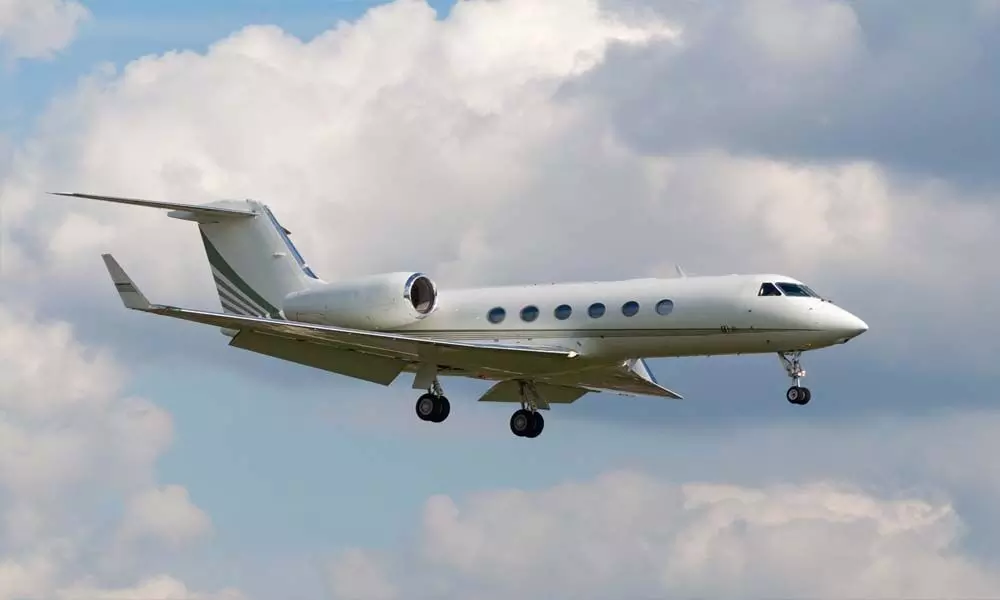India on course to develop aircraft leasing domestically
Currently, there are no aircraft leasing companies in India, which forces domestic airlines to look for lessors abroad
image for illustrative purpose

Delivery of 43,110 new airplanes globally expected in the period of 2020-39, is leading to expansion of the global fleet of 25,900 aircraft in 2019 to 48,400. The highest share of deliveries would be to the Asia-Pacific, with China accounting for 50 per cent of the regional total.
The air cargo market is forecasted to grow at four per cent annually, with the freighter fleet expanding by nearly 60 per cent from the current level of 2,010 aircrafts to 3,260 by 2039. This growth will drive the need for 2,430 new and converted freighters.
According to PwC, the size of the global aircraft leasing industry was estimated to be $290.07 billion in 2019. From owning just 25 per cent of the total commercial fleet in 2000, aircraft lessors have grown to owning about 48.9 per cent of the total fleet in 2020. More than 60 per cent of these aircraft are owned or managed out of Ireland.
India's commercial fleet is projected to expand to 1,100 by 2027, almost doubling from present levels on the back of rising demand from LCCs. The fleet size in 2037 is likely to stand at 2,300 aircraft, with single-aisle airplanes leading the demand and accounting for almost 85 per cent of new deliveries. Around 80 per cent of the total commercial fleet in India is leased compared with 53 per cent globally
In a bid to support the civil aviation sector and Indian carriers, the government of India has announced its intention to develop an aircraft financing and leasing hub in India. The government has announced a new framework entitled 'Framework for Aircraft Operating Lease' ("the Framework") that paves the way for lessors to set up operations in India.
In October 2020, 'aircraft lease' was designated as a 'financial product' that can be offered by entities set up in International Financial Services Centres (IFSCs) in India. IFSCs are essentially special economic zones dedicated to financial services. Apart from having a single-point authority to regulate the financial services, IFSCs provide tax benefits and flexibility in foreign currency transactions. They are, therefore, well suited to host entities that offer aircraft finance. In February 2021, as part of the Union Budget, the Indian Finance Minister announced certain tax incentives encouraging foreign entities to set up in India's first IFSC, the GIFT City in the state of Gujarat. Following closely on the heels of the budgetary announcement, the government has announced the framework. As a result, aircraft leasing and finance companies can immediately start preparations to set up in GIFT City.
The framework allows leasing companies to set up a company, a limited liability partnership or a trust in India and have such entity registered with the IFSC Authority as a 'lessor'. A 'lessor' can be engaged in the business of providing aircraft or helicopters and the engines of aircraft or helicopters or any other part thereof under lease arrangements, including sale and lease back, purchase, transfer, assignment and novation. A 'lessor' must have a minimum of $200,000 capital or its equivalent in a foreign currency and is required to transact in foreign currency, although it can maintain an Indian Rupee account for defraying administrative expenses. In addition, a 'lessor' will be required to make filings with the IFSC Authority (most likely on an annual basis). The initial statutory cost of setting up a 'lessor' is $6,000 and the recurring annual statutory cost is $3,000, although these figures are subject to change.
"The Government should consider taking additional steps such as passing a specific law dealing with the implementation of the Cape Town Convention in India and its interplay with the Insolvency and Bankruptcy Code."
The announcement of the Framework may already be bearing fruit with recent news reports suggesting that some aircraft finance companies have already started the process of setting up 'lessors' in GIFT City.
These recent developments aim to encourage the established global aircraft finance and leasing entities to set up in India. However, these developments could result in the establishment and growth of Indian-owned aircraft finance and leasing companies. Entities set up in the IFSC are essentially treated as 'persons resident outside India' for the purposes of Indian foreign exchange control regulations. This will give Indian-owned 'lessors' set up in IFSCs access to (cheaper) debt from the international markets and the ability to freely transact in foreign currency with respect to aircraft and associated assets, essentially United States Dollar assets.
Currently, there are no aircraft leasing companies in India, which forces domestic airlines to look for lessors abroad. The presence of local lessors would not only help airlines in terms of creating greater opportunities for better leasing terms and conditions, but also help them navigate currency depreciation risks better, thus removing uncertainties from their operational framework.

